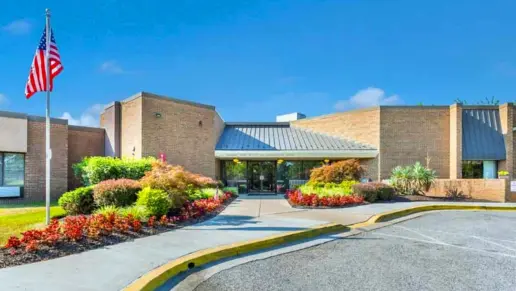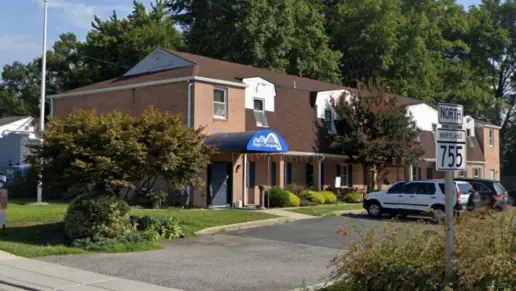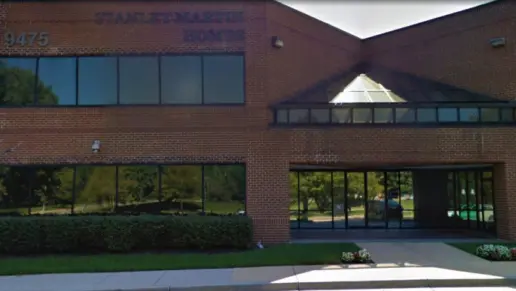About Delta Rehabilitation Center
Delta Rehabilitation Center is a drug rehabilitation program that also provides therapy for clients with co-occurring mental health disorders. The program accepts most health insurance, Medicare, Medicaid, military insurance (TRICARE), and Tribal funds. The treatment center is located in Baltimore, Maryland, five miles from the National Aquarium. Baltimore is a lively city with a thriving arts scene, where clients can find many sober activities to keep them busy between treatments.
A Comprehensive and Supportive Addiction Treatment Approach
The program provides a comprehensive and supportive approach to addiction treatment. They address the psychological aspects of addiction through individual and group therapy. Group counseling provides peer support, improves your communication skills, and fosters a sense of community with others who may have similar experiences to your own.
They engage family members when appropriate and provide family therapy to support the client. Therapy strives to improve the family system and relationship dynamics. Family and couples therapy help clients rebuild trust that’s often lost with substance misuse.
Improving Life Skills for Long Term Sobriety
Many clients with substance use disorders grapple with the necessary skills for independent living. The staff focuses on helping clients develop the skills they need for an independent and balanced life after treatment.
Additionally, aftercare support gives clients the guidance they need to continue with sobriety after the program. The treatment team will connect you with resources, such as 12 step meetings and housing assistance, which are important to maintaining a substance free life long term.
Latest Reviews
Thank you! We hope your mom continues to have a great stay and are honored to be caring for her.
We deeply appreciate you taking the time to leave us a review!
All the best,
Complete Care at Multi-Medical Center Staff
We appreciate it a lot!!
All the best,
Complete Care at Multi-Medical Center
All the best,
Complete Care at Multi- Medical Ceneter
Rehab Score
Other Forms of Payment
Self-pay involves paying for treatment out of your own pocket. You can use savings or credit, get a personal loan, or receive help from family and friends to fund your treatment. If you don't have insurance or your insurance plan doesn't cover a specific program, self-pay can help ensure you still get the care you need.
Medicaid is a state based program that helps lower-income individuals and families pay for healthcare. Medicaid covers addiction treatment so those enrolled can use their coverage to pay for rehab. When a program accepts Medicaid the client often pays very little or nothing out of their own pocket.
Medicare is a federal program that provides health insurance for those 65 and older. It also serves people under 65 with chronic and disabling health challenges. To use Medicare for addiction treatment you need to find a program that accepts Medicare and is in network with your plan. Out of pocket costs and preauthorization requirements vary, so always check with your provider.
Addiction Treatments
Levels of Care
 Aftercare Support
Aftercare Support
Treatments
The goal of treatment for alcoholism is abstinence. Those with poor social support, poor motivation, or psychiatric disorders tend to relapse within a few years of treatment. For these people, success is measured by longer periods of abstinence, reduced use of alcohol, better health, and improved social functioning. Recovery and Maintenance are usually based on 12 step programs and AA meetings.
Once a person has become addicted to a substance, drug rehab in Maryland is often necessary to overcome that addiction. These programs provide the tools individuals need to manage the physical, mental, and emotional issues involved and begin a successful recovery journey.
A combined mental health and substance abuse rehab has the staff and resources available to handle individuals with both mental health and substance abuse issues. It can be challenging to determine where a specific symptom stems from (a mental health issue or an issue related to substance abuse), so mental health and substance abuse professionals are helpful in detangling symptoms and keeping treatment on track.
Opioid rehabs specialize in supporting those recovering from opioid addiction. They treat those suffering from addiction to illegal opioids like heroin, as well as prescription drugs like oxycodone. These centers typically combine both physical as well as mental and emotional support to help stop addiction. Physical support often includes medical detox and subsequent medical support (including medication), and mental support includes in-depth therapy to address the underlying causes of addiction.
Programs

Adult Program

Young Adult Program
Clinical Services
Whether a marriage or other committed relationship, an intimate partnership is one of the most important aspects of a person's life. Drug and alcohol addiction affects both members of a couple in deep and meaningful ways, as does rehab and recovery. Couples therapy and other couples-focused treatment programs are significant parts of exploring triggers of addiction, as well as learning how to build healthy patterns to support ongoing sobriety.
Research clearly demonstrates that recovery is far more successful and sustainable when loved ones like family members participate in rehab and substance abuse treatment. Genetic factors may be at play when it comes to drug and alcohol addiction, as well as mental health issues. Family dynamics often play a critical role in addiction triggers, and if properly educated, family members can be a strong source of support when it comes to rehabilitation.
Group therapy is any therapeutic work that happens in a group (not one-on-one). There are a number of different group therapy modalities, including support groups, experiential therapy, psycho-education, and more. Group therapy involves treatment as well as processing interaction between group members.
In individual therapy, a patient meets one-on-one with a trained psychologist or counselor. Therapy is a pivotal part of effective substance abuse treatment, as it often covers root causes of addiction, including challenges faced by the patient in their social, family, and work/school life.
Life skills trainings involve all the skills a person must have in order to function successfully in the world. These include time management, career guidance, money management, and effective communication. Truly successful addiction recovery is based on the ability to not only live substance-free, but to thrive. Life skills teaches the practical necessities of functioning in society, which sets clients up for success in life, and therefore sobriety.
Contact Information
4324 York Road
Baltimore, MD 21212


